100 years after women were given the vote, it’s time to recognise lesbian, bi and queer Suffragists
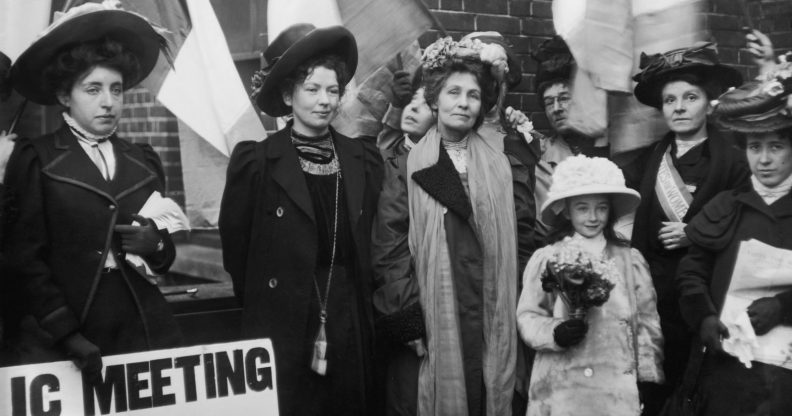
21st December 1908: The English suffragettes Emmeline Pankhurst (1858 – 1928), and her daughter Christabel Harriette (1880 – 1958), founders of the Women’s Social and Political Union in 1903, after leaving Bow Street in London, where they were imprisoned. (Photo by Hulton Archive/Getty Images)
Today is the day that women have come out in force to celebrate the landmark achievements of the Suffragists in securing women the right to vote.
100 years has passed since women over 30 were legally permitted to vote in general elections after the Women’s Social and Political Union (WSPU) fought for fifteen years for womens’ democratic rights.
Yet the tides of the Suffrage movement are still surrounded in misinformation and confusion, with several leading members and activists in the movement identifying as lesbian, bi, or simply as women who were attracted to other women.
Even now, we use the term ‘Suffragette’ to talk about the movement as a whole – when in fact, the term was a demeaning epithet coined that was used to discredit the movement by The Daily Mail.
Leader of the movement Emmenline Pankhurst and her daughter Christabel are said to have had relationships and attractions to other women cataologued during the movement, as well as the likes of Chief Organisers Annie Kenney, Grace Roe and Olive Bartels; and leading militants Emily Wilding Davison, Mary Leigh and Lilian Lenton.
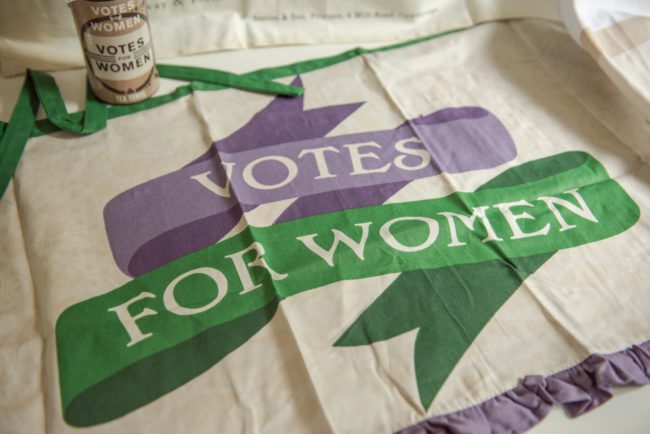
(Richard Stonehouse/Getty Images)
A lot of this information was found in activist Mary Blathwayt’s diary, who also detailed the trysts of Annie Kenney, Emmeline Pethick-Lawrence and Ethel Smyth. But why is it it important?
According to Labour MP Cat Smith, we have been presented with a “sanitised history” of the movement over the years, which has exaggerated the more amenable traits of the activists. If an activist wasn’t heterosexual, white, or middle class, they have tended to be erased from the annals of the Suffragists’ history.
“When it comes to looking back at the history of the Suffragette and Suffragist movement it’s obvious it’s a sanitised history that is known by the majority of the public. But this wasn’t just a history of purple and green sashes and of middle class women. In fact acts of direct action and civil disobedience played a key role in winning the vote. Women were sexually assaulted by police and force fed in prisons, a practice we now acknowledge as torture,” said Cat Smith MP.
“We see working class women, women of colour and queer women pushed out of the history books in favour of the heterosexual, white and middle class women. I hope we see the centenary of property owning women over the age of 30 winning the vote as an opportunity to acknowledge that the movement included queer women as well as working class women and women of colour,” she added.

It can be difficult to find the role models that we need and deserve in the limited stories of history.
While most of us will remember our history classes circling around a homogenous group of people written in one textbook by one man, we know that history doesn’t fit into a box, and is brought to life and understanding by representing as many histories as possible.
Although none of us are particularly privy to detailing the exact relationships each woman had with other women, knowing that they existed in the positions they do can empower us to see our own role in society a little bit differently.
Former leader of the Scottish Labour Party Kezia Dugdale believes that now the anniversary is upon us, it’s time to start reshifting the focus on the Suffragist movement to include more women.
“On Tuesday I will be speaking in a Scottish Parliament debate to mark 100 years of women securing the right to vote. It’s a date worthy of commemoration and chance to reflect on how much progress has been made, but also an opportunity for women to get angry and use their voice to strive once more for that long eluded equality,” she said.
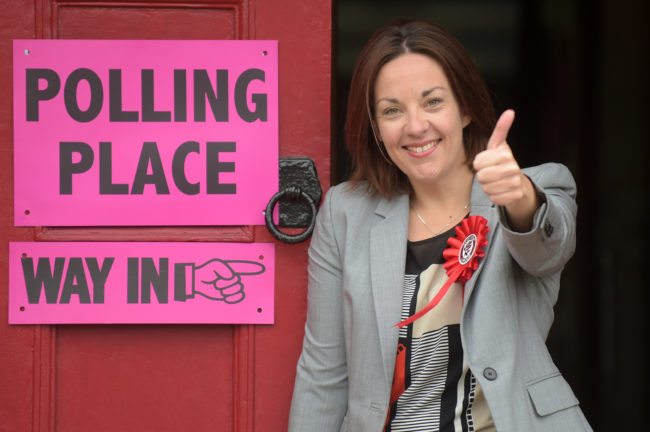
(LESLEY MARTIN/AFP/Getty Images)
“Suffragettes like the Pankhursts are well known, but there are many inspirational stories from the battle to secure the vote for women that are less well known. I have sought to raise awareness of the first woman to speak in the House of Commons, secretary Margaret Travers Symons, who in 1908 ran up to the dispatch box and shouted “Address the women’s issue!” just before being hauled away.
“In Edinburgh, a doctor called Mona Chalmers Watson created the female unit of the British Army during the First World War and was also a noted Suffragette, campaigning to improve the levels of pay offered to women who were doing the same jobs as men – something we continue to fight for today. I have urged the Scottish Government to look at some way of creating a lasting, national tribute to the women like Mona who have served their country.
“There is also more to be done to raise awareness of the role played by Indian princess Sophia Duleep Singh in the Suffragette movement, and there are many suggestions of gay relationships within the movement that deserve wider exposure, but the history of those times – so often written by men – was coy at keeping official records of them. This week and in the months and years ahead, as we strive for greater equality, we should remember the women who blazed a trail a century ago, whatever their social background, religion, race or sexuality,” she added.
Angela Eagle also believes that the erasure of queer people from history as a whole has discredited their integral role in securing women the right to vote.
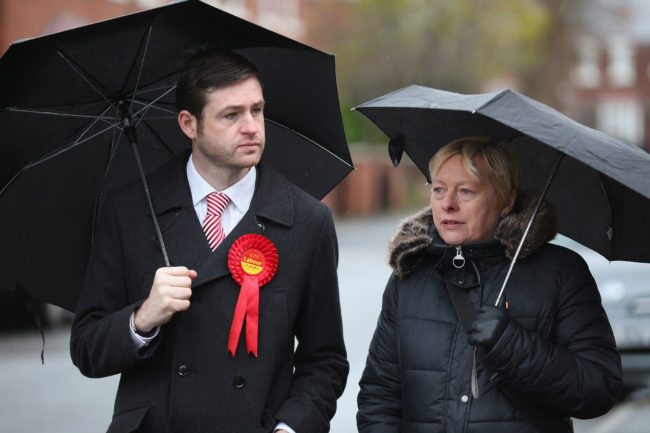
(Christopher Furlong/Getty Images)
“The prominence of LGBT women in the suffragette movement has often been overlooked, particularly in periods when both society and the law discriminated heavily against LGBT people. But in recent decades rights have been won and attitudes have changed for the better, and we must now proudly celebrate the role that lesbian women played in the suffragette movement,” said MP Angela Eagle.
“Thanks to the activism of the suffragettes, the franchise was extended to some women in 1918, and to all women over the age of 21 ten years later. But it would be many years before the LGBT community was afforded equal rights before the law. This centenary should give us an opportunity to reflect on the many struggles that female activists have led and the victories they have won throughout the last 100 years.”
Looking ahead, journalist an author of She: A Celebration of Renegade Women Harriet Hall has highlighted that the future of history-writing needs to ensure that women from all backgrounds and sexual orientations need to be included in order for real progress to be made.
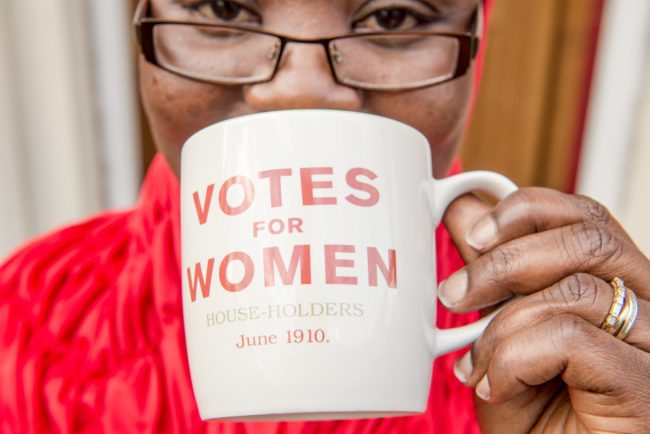
(Photo by Richard Stonehouse/Getty Images)
“Women’s’ contribution has long been written out of the conversation and when it comes to LGBT women, even more so. Their queerness is brushed under the carpet, or used as further reason to erase them from discussions. On the centenary of the vote, it is time we rewrote herstory and included these invaluable contributions, without many of whom things would look quite different today. Intersectional feminism is the only feminism, if we want to make real change,” said Hall.

